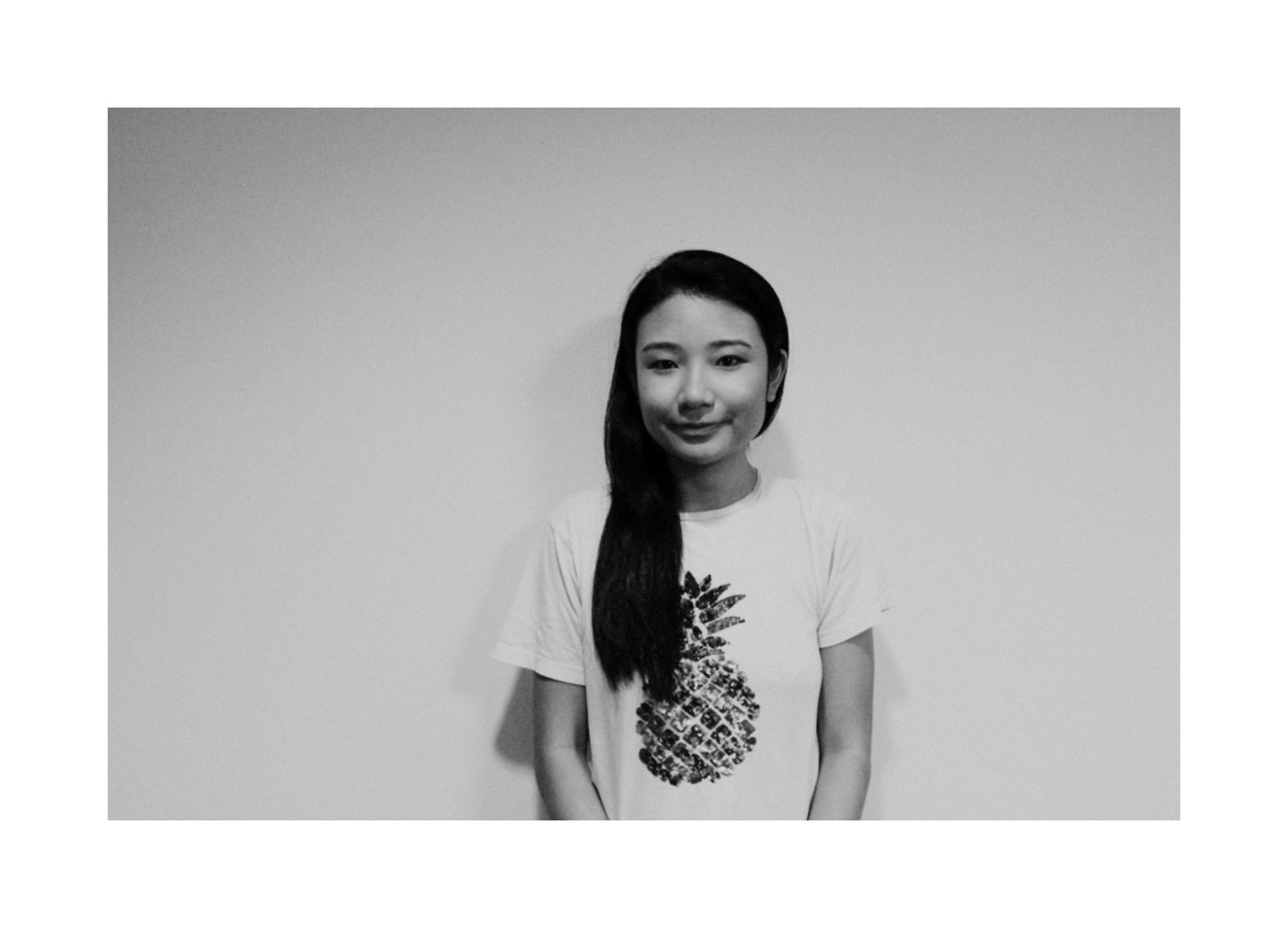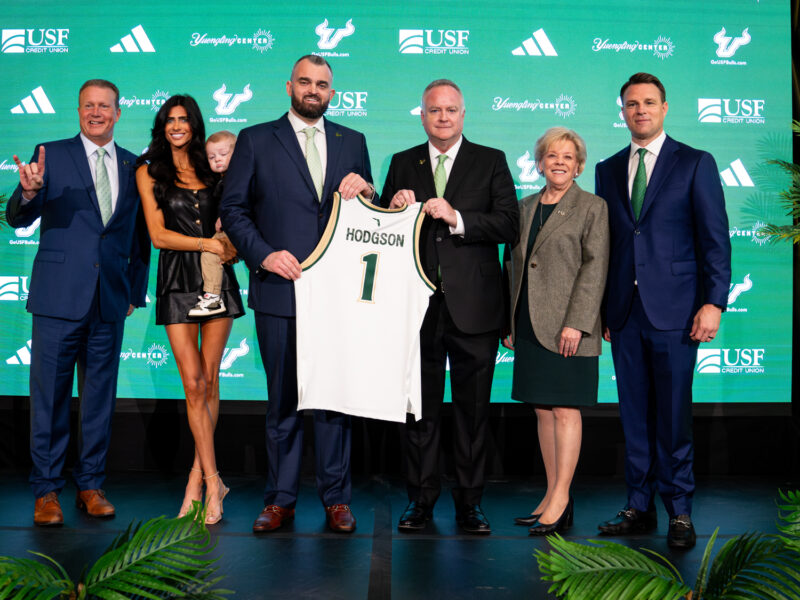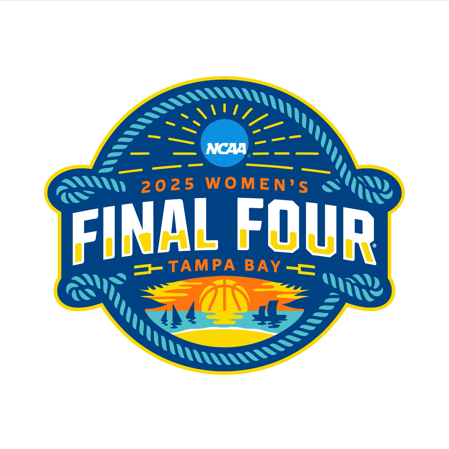Tashi Wangmo has been working on bringing the inner human alignments project to campus for about a month. Courtesy of Miranda Reyes
By Amy Diaz
One international student is on a mission to change the way students think about pressing global issues.
Tashi Wangmo, 23, is a senior English and writing studies major at USF St. Petersburg. Last year, she led an event on campus introducing students to the culture of Bhutan, her native country. Now she’s working on saving the world.
In 2015, the United Nations General Assembly compiled a list of 17 sustainable development goals to transform the world by 2030. Some of the goals include ending world hunger and poverty, reaching gender equality and combating climate change.
Three years later, author and philosopher Richard Bowell, published the book “An Urgent Plea from the Future,” in association with a research team from the Global Center for Human Change, a nonprofit organization based in New York.
In the book, he explains that long-term, sustainable change will only come with a change in our thinking. He offers 17 “inner-human alignments” to go along with each goal. For Bowell, “to transform the world, we must transform ourselves.”
Wangmo likened the term “alignments” to a sort of ancient wisdom. She said the problem with our generation is that we have access to so much information, but lack the wisdom to use it properly.
The unique language of the project is what inspired Wangmo to get on board with it.
“It’s not telling people what to do or what not to do, it’s really just saying that we have this consciousness in ourselves. We just need to find it and we need to employ it,” she said.
Wangmo explained that working on our thought process is a practice, but eventually it will become an automatic reflex.
“When we face these problems, what happens is that we as human beings, because of the level of thinking that we are at right now, come up with solutions that are short-term and that do not work,” she said.
She gave the example of recycling. Recycling centers in the U.S. are shutting down, and China recently said it will no longer accept the rest of the world’s plastic and waste because it isn’t profitable. Prior to this, China and Hong Kong had been accepting 72 percent of the world’s plastic waste.
“Our paper and plastic recycling materials are piling up, you know, they’re not going anywhere, and it’s not working,” Wangmo said. “That is one example of how we are thinking about how we react to the problem that we have, instead of responding to it.”
This project focuses less on specific strategies and more about adjusting the way we consider and value the world and natural resources.
Bowell’s aim is to get the global conversation going surrounding these issues and create a new world that accomplishes the SDGs.
“The inner alignment project is going to help us to show the way we can all make the necessary shift in our minds to a more conscious level of human response that begins within ourselves,” Wangmo said.
She visited several clubs on campus and gave presentations explaining the project to gauge student interest. So far, 24 students with varying majors have signed up to take part.
Wangmo and Trey Conner, a professor guiding her through the project, spoke with Magali Michael, dean of the College of Arts and Sciences, about implementing it at school. If it goes through, USF St. Petersburg will be the first school in Florida to have signed onto the project.
Considering USF is a part of the UN Academic Impact Initiative, Wangmo feels that the university should commit to this project to do its part in contributing to the coalition.
Her goal is to have researchers from New York give students an orientation to the project, and workshops to discuss the 17 goals and alignments more in depth. If the project is passed, they could begin these events as early as November.
“We live in a very challenging time. Just last week there was a report by the climate panel convened by the UN with a bunch of scientists who said that drastic climate changes are going to happen as soon as 2040, you know, in our own lifetime,” Wangmo said. “We have this responsibility, so that was the driving force behind me wanting to bring this project here.”
But it will all come down to funding.
Wangmo is asking for $20 per package per student. The package will include a copy of Bowell’s book, a subscription to Evolutionary News and access to the orientation.
Students interested in taking part in the project can email Wangmo at tashiwangmo@mail.usf.edu.




Great work Tashi.